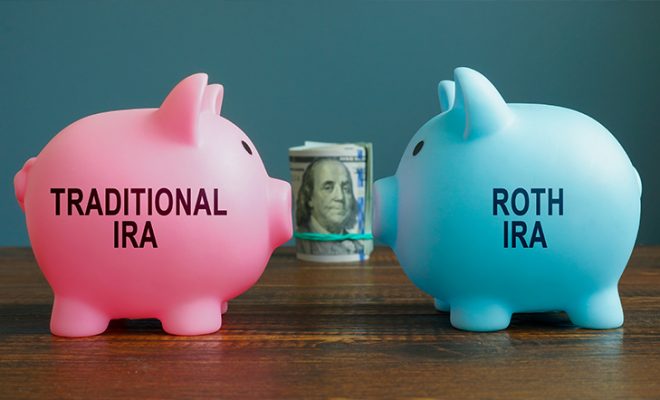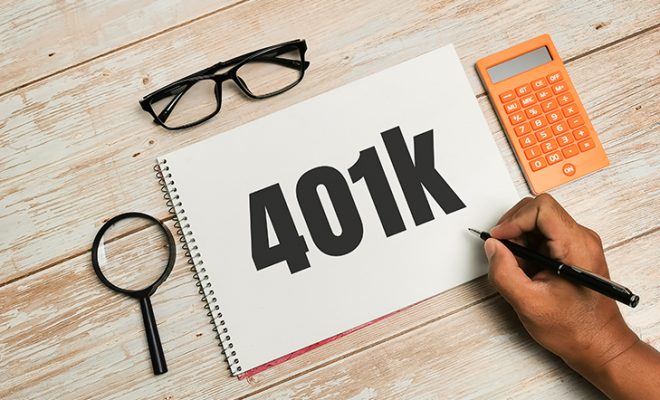Traditional and Roth IRA Early Withdrawal Penalties

When facing a financial crunch, most individuals look to withdraw their retirement funds, especially IRAs. While one can do that, one needs to be mindful of applicable penalties and tax implications. Most financial experts may not encourage the idea of taking an early distribution from your individual retirement account. This is because you may have to pay a penalty for withdrawing from a Roth IRA and a traditional IRA early. Apart from the penalties, the withdrawal may also affect your potential earnings in the future.
The Internal Revenue Service (IRS) has put these penalties in place to motivate IRA holders to save their retirement corpus and to use its funds only as a last resort or in case of acute emergencies. Not to mention, early withdrawals normally incur a 10% tax penalty and may also need to pay income tax on the amount withdrawn. Do note that this penalty applies only to taxable funds, which depends on the choice of IRA.
Early withdrawals can result in heavy taxes and penalties being levied that may quickly turn into a financial disaster for you. If you wish to learn about the different early withdrawal penalties charged on both traditional and Roth IRAs and how to avoid them, consult with a professional financial advisor who can advise you on the same.
In this article, we will talk about the different penalties charged in the case of both traditional and Roth IRAs. Knowing these penalties will also help you decide which IRA is best for you.
What is the penalty for withdrawing from a traditional IRA?
Early withdrawals from traditional individual retirement accounts are penalized at 10% by the Internal Revenue Service or the IRS (state tax penalty may also be applicable). The heavy penalties on an early distribution from traditional IRAs can be attributed to the fact that they are pre tax accounts, i.e., you did not pay a tax on them (before transferring to your individual retirement account).
The advance tax relief that you earned when you contributed will need to be balanced when you withdraw early. This means that the entire amount in your traditional IRA is deemed as taxable income, and thus you are mandated to pay a 10% penalty on any sum that you withdraw before you turn 59.5 years of age.
Due to the ensuing taxes and penalties, it is advised to not make an early withdrawal from your traditional IRA. In case of an IRA owner’s death, the beneficiary may withdraw the amount without paying any penalties. However, they will have to bear any applicable taxes. In the following cases, the penalty for making an early withdrawal before reaching 59.5 years of age may be waived off:
- Any medical expenses that have not been reimbursed and exceed 7.5% of your AGI
- Payment of medical insurance premiums after becoming unemployed
- Due to suffering from a total and permanent disability
- Withdrawn by the beneficiary after the IRA owner’s demise
- Distributions are lower than qualified higher education expenses
- For buying or building a first home
- IRS levy of the qualified plan is causing the distribution
- Qualified reservist distribution
- As a part of a series of substantially equal periodic payments
- For meeting the expenses of a qualified birth or adoption
What are required minimum distributions (RMDs)?
It is mandatory for traditional IRA holders to start making withdrawals once they reach the stipulated age. The two starting ages according to the Secure Act are 70.5 for people born on or before June 30, 1949, and 70 for those born after July 1, 1949.
So, according to the rules, the first withdrawal must be made by April by the year succeeding the year when you hit starting age, and all further withdrawals must be made by December 31 every subsequent year.
The non-withdrawal of the minimum amount will attract a steep penalty equivalent to 50% of the mandatory amount. If you can convince the IRS of a valid reason for the failure, the penalty may be waived off.
As a traditional IRA holder, you are allowed to defer your first RMD to April 1 of the next year. However, this is best avoided, so you do not need to take two distributions in the same year. Also, remember that the RMD is calculated based on life expectancy.
What is the penalty for withdrawing from a Roth IRA?
When you contribute to a Roth IRA, it is from the income that you have already paid tax on. Thus, income tax is not applicable when you withdraw early from your Roth account. Roth IRA withdrawal penalty is also not applicable if you are trying to withdraw a sum equivalent to what you have contributed.
However, withdrawing an amount above that, i.e., trying to withdraw the earnings prematurely will attract a penalty of 10%. The extra amount will also be treated as taxable income.
The major benefit of Roth IRA contributions is that your earnings grow tax-free, and you can make tax-free withdrawals in retirement. You can also withdraw your contributions without attracting a penalty. However, if you wish to reinvest the money in a Roth IRA, you have a period of 60 days to do so, and no more.
If a contribution is made and withdrawn during the same tax year along with the earnings it has accrued, it will not attract a penalty. The earnings, however, need to be declared as investment income.
How can you withdraw from your Roth IRA without incurring a penalty?
While your retirement savings are well protected against any kind of scam or fraud by the IRS rules, you can access them without worrying about taxes or penalties if you are qualified. Qualified distributions are those that are made when at least 5 years have passed since the first contribution to Roth IRA and adhere to the following conditions:
- The account holder is 59.5 years of age or older.
- The account holder has a permanent disability.
- The account holder has passed away and the beneficiaries have made a withdrawal
- The account holder is a first-time homebuyer or building a home for the first time.
Distributions not meeting these criteria are subject to income tax and a 10% penalty. However, the contributions are still safe, and the tax and penalties apply only to the earnings.
Still, wondering if you can avoid a Roth IRA early withdrawal penalty on the earnings too? The answer is yes, you can avoid the penalty in some cases, but the tax is unavoidable.
Here are the cases in which you can withdraw without penalty:
- Medical expenses above 10% of your adjusted gross income that you don’t get reimbursement for
- Medical insurance premiums after a job loss
- Qualified higher-education expenses
- Series of substantially equal distributions
- Qualified reservist distributions
Can you take out a loan from your Roth IRA?
A Roth IRA allows temporary loans for a period of 60 days. Post that, you can return either to a traditional IRA or the same Roth IRA. However, this Roth rollover is subject to strict rules and can be done only once a year, beyond which it will be treated as a non-qualified distribution. Converting from a traditional IRA to a Roth IRA offers a plethora of benefits, including not having to take out any required minimum distributions in your lifetime. However, the conversion will require you to pay taxes on the amount you choose to convert. It is ideal to convert when you are placed in a lower tax bracket.
Remember, people under 59.5 years of age need to pay a 10% penalty if they choose the funds from a traditional IRA to pay the taxes for conversion. In case the tax is paid additionally, the conversion will not attract a withdrawal penalty.
To conclude
Irrespective of the tax and penalties, withdrawing from any of your IRAs should be a well-thought-out decision. This is because a poor decision may take away the opportunity for potential growth and earnings. Analyze all options before you choose to withdraw from your retirement accounts, and if you must, take care of all rules to minimize taxes and penalties. You could also consult your financial advisor before making any withdrawal decisions.
Use the free advisor match tool to match with experienced and certified financial advisors who will be able to guide and advise you effectively on early withdrawal penalties and exceptions to the said penalties in traditional and Roth IRAs. Give us basic details about yourself, and the free match service will connect you with 1-3 professional financial fiduciaries that may be suited to help you.










